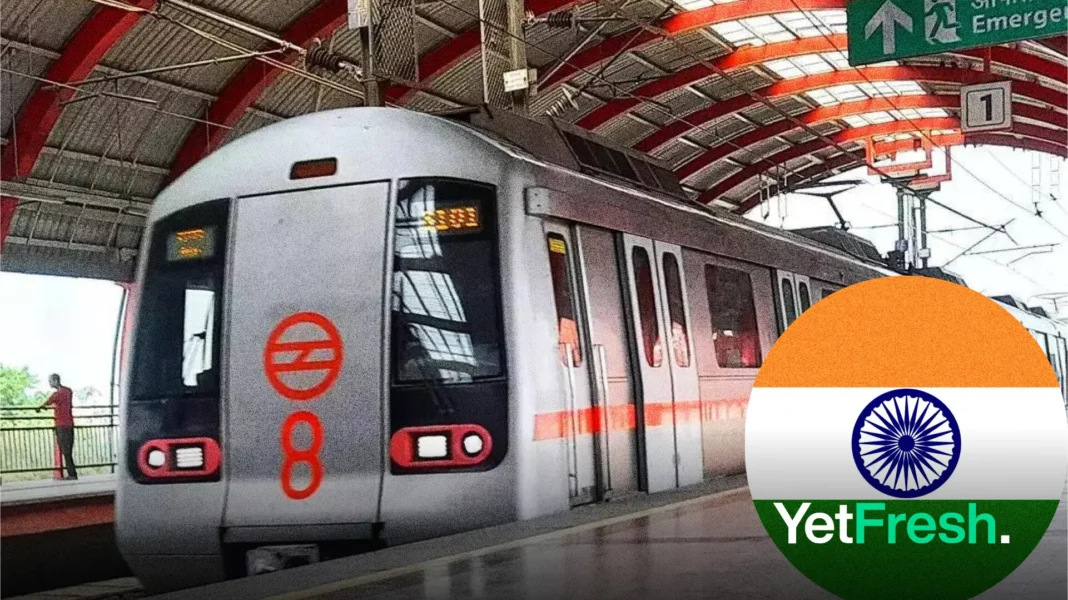Summary:
- India plans to extend metro services to the Petrapole border to enhance connectivity and attract Bangladeshi medical tourists.
- Bangladeshi patient inflow to Indian hospitals has dropped by 80-90% due to political tensions and visa restrictions.
- Kolkata hospitals are heavily impacted, with many Bangladeshi patients seeking treatment in alternative countries like Malaysia and Thailand.
- The metro project is part of broader efforts to improve cross-border infrastructure and strengthen India-Bangladesh relations.
India is taking steps to enhance cross-border connectivity with Bangladesh, despite ongoing political tensions and a significant decline in Bangladeshi medical tourists. Union Minister Shantanu Thakur recently announced plans to extend metro rail services to the Petrapole border, a major land port connecting the two nations. This development aims to improve infrastructure and cater to the substantial number of Bangladeshi patients who traditionally travel to India for healthcare.
Speaking at an event in Siliguri on Friday, Thakur emphasized the importance of Petrapole as a growing border hub. “We aim to develop Petrapole into a significant border city, with plans for a new rail station connecting Petrapole to Kolkata via metro services,” he stated. The initiative seeks to address the needs of thousands of Bangladeshi nationals who visit Kolkata annually for advanced medical treatments.
This announcement comes at a time when diplomatic relations between India and Bangladesh are strained. Political unrest in Bangladesh has led to a sharp decline in the number of medical tourists traveling to India. Reports indicate that Bangladeshi patient inflow at Indian hospitals has dropped by 80-90% in recent months, significantly impacting private healthcare facilities in cities like Kolkata, Bengaluru, and Chennai. Previously, Bangladesh accounted for nearly 60% of India’s medical tourism market, with specialties such as cardiology, orthopedics, and gastroenterology being key attractions.
The downturn is attributed to visa restrictions, safety concerns, and rising anti-India sentiment in Bangladesh. Some Bangladeshi patients have begun seeking treatment in alternative destinations like Malaysia, Thailand, and Turkey, which offer competitive pricing and culturally tailored services. Malaysian healthcare providers, for instance, have aggressively marketed their facilities to Bangladeshi patients, capitalizing on the current geopolitical climate.
Kolkata hospitals, which heavily rely on Bangladeshi patients for revenue, are among the worst affected. Institutions like Peerless Hospital and Desun Hospital have reported drastic reductions in outpatient visits and admissions from Bangladesh. “We used to receive around 150 Bangladeshi patients daily; now it’s less than 30,” said Dr. Sudipta Mitra, CEO of Peerless Hospital.
Despite these challenges, India appears determined to strengthen its ties with Bangladesh through infrastructure projects and enhanced connectivity. The proposed metro extension aligns with broader efforts to improve trade and people-to-people exchanges at the Petrapole-Benapole border. Earlier this year, Union Home Minister Amit Shah inaugurated an integrated check post at Petrapole, designed to streamline passenger movement and cargo flow between the two countries.
However, experts caution that infrastructure alone may not be enough to reverse the decline in medical tourism from Bangladesh. Addressing visa processing delays and fostering goodwill through diplomatic initiatives will be crucial for India to regain its position as a preferred destination for Bangladeshi patients.
As geopolitical dynamics continue to evolve, the proposed metro project symbolizes India’s commitment to regional connectivity and economic cooperation. Whether it will successfully counteract the current challenges remains uncertain, but it underscores India’s strategic focus on maintaining its influence in South Asia amidst shifting trends in medical tourism and bilateral relations.
Source: Daily Inqilab




